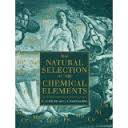
Professor Bob Williams (1926 - 21 March 2015)
Lembrando Bob Williams

Professor R.J.P. Williams, a quem tratavam por Bob, partiu...
Uma grande figura científica que não deve ser esquecido.
Um “revolucionário” da Química Inorgânica e o “fundador” da Química Bioinorgânica.
Muitas contribuições em muitos tópicos, sempre em desafios.
Muitos “alunos” portugueses passaram pelo ICL em Oxford. Um amigo de Portugal.
Aqui ficam alguns textos.
Robert Joseph Paton Williams MBE FRS (1926 - 21 March 2015)
Professor R.J.P. Williams, FRS, was Emeritus Fellow at Wadham College and Emeritus Professor, University of Oxford. He studied Chemistry at Merton College, Oxford, graduating in 1948. During the course of his Part II work the Irving-Williams series of the stabilities of complex ions, which is of paramount importance in both non-living and living systems, was discovered. He took his doctor's degree at Oxford in 1950 working with Professor H.M.N.H. Irving. With Professor A. Tiselius (Uppsala, Sweden) 1950-51, he developed certain (gradient elution) chromatographic methods of analysis. He then became lecturer and tutor in Chemistry at Wadham College, 1955-65.
After a year at Harvard University, 1965-66, with Professor B.L. Vallee, he changed to teach biochemistry until 1974, and was Napier Royal Society Research Professor at the University of Oxford from 1975-1991. In 1961 he proposed proton-gradient-driven ATP formation as the driving force of bio-energetics. He pioneered the field of Bio-Inorganic Chemistry, especially concerning the role of calcium as a biological messenger, and contributed substantially to our understanding of the evolution of life. Together with J.J.R. Fraústo da Silva he just published a book on the Chemistry of Evolution. He was elected Fellow of The Royal Society in 1972 and is a Foreign Member of the Swedish, Portuguese, Czechoslovakian and Belgian science academies. He received various medals of the Biochemical Society, the Royal Society, the Royal Society of Chemistry, the European Biochemical Societies and of the International Union of Biochemistry. He has honorary degrees from Louvain, Leicester, Keel, Lisbon and East Anglia Universities. Bob Williams was a founder member of the Oxford Enzyme group in which he and his colleagues devised many new methods for the study of in vitro and in vivo biological systems, especially using nuclear magnetic resonance spectroscopy. Three portuguese scientist got their PhDs Thesis under is supervision (A.V. Xavier. C. Geraldes and A. P. Aguiar).
R. J. P. Williams and J. J. R. Fraústo da Silva - the Portuguese connection
R. J. P. Williams, Royal Society Research Professor Emeritus at Wadham College, Oxford University, and J. J. R. Fraústo da Silva, Professor of Analytical Chemistry at the Instituto Superior Técnico, Universidade Técnica de Lisboa, have collaborated on two previous volumes: New Trends in Bio-inorganic Chemistry (1978) and The Biological Chemistry of the Elements (3rd printing, 1994). Their latest collaborative effort (The Natural Selection of the Chemical Elements) was a book whose ambitious objective is “to show the relationship of every kind of material around us, living and nonliving, to the properties of the chemical elements of the periodic table.”


Some personal words
Very sad news. Bob will be always remembered for many scientific reasons. He left is "golden (all metals) finger" in so many topics. I was very fortunate to be a young PhD student on ICL under is command for a certain period. He was a continuous challenge. I use to have NMR (270 MHz) time very late in the evening, and if I arrived late in the next morning, even if he was not there, he would have left an hand note asking about the experiment and suggesting new ones. Always taking care. During ICBIC in Algarve, in the beach, he drew in the sand some ideas that will enable us to produce the new hetero-metal clusters in 3Fe Ferredoxin. And for several years I always learn from him. And I kept a lot of other nice stories that will always make me remember him as a special human being.
José Moura